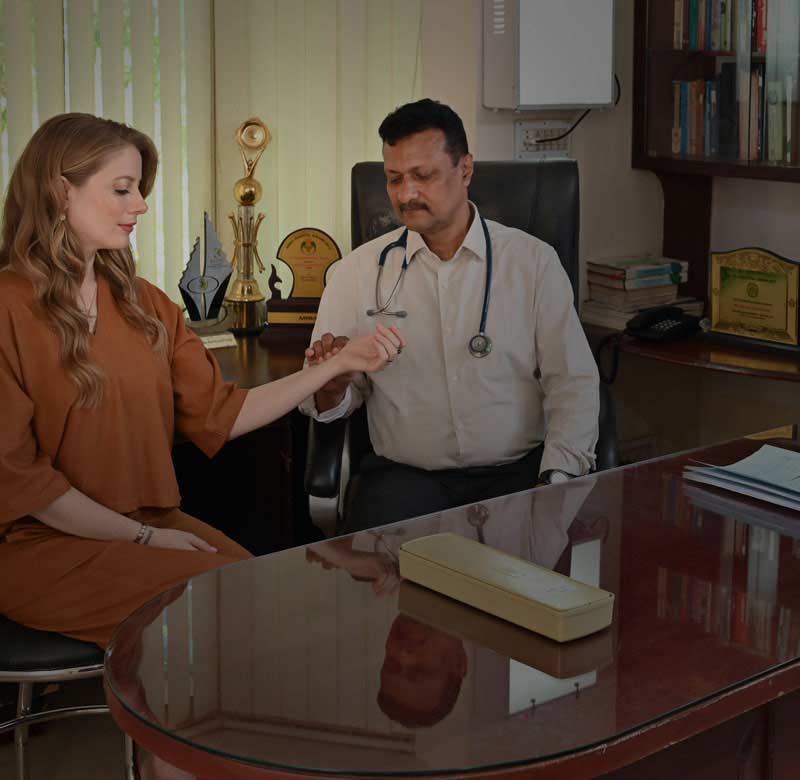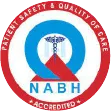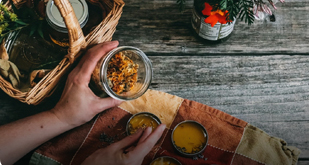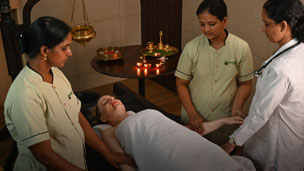







For authentic & scientific
ayurveda
Nagarjuna has developed speciality protocols
and adopted integrated and holistic approaches “to improve
the quality of life of ailing population”.
Ayurveda Panchakarma Treatment
Panchakarma, an integral part of Ayurveda, is a set of five major procedures aimed at eliminating toxins from the body through various routes of elimination. This concept of cleansing the body is deeply rooted in Ayurvedic principles and has also been embraced by allied sciences like Yoga. It is a unique aspect of Ayurveda that sets it apart from other medical systems worldwide, as it encompasses a comprehensive science of body-mind detoxification.
The human body consists of millions of cells, each with its own metabolism. During these metabolic processes, the body produces beneficial substances while also generating waste products or toxins. Ayurveda recognizes this natural occurrence and emphasizes the importance of regular cleansing to maintain good health. In Ayurvedic terms, the body can be likened to an automobile. Just as regular service is required to remove the carbon and waste generated by combustion to maintain the vehicle's performance, the body also needs regular cleansing to ensure its optimal functioning.
In the context of Panchakarma, all three phases of the treatment process are equally significant. However, in Kerala Panchakarma therapy, particular attention is given to the first and third steps. It is believed that proper accumulation of toxins is essential for effective elimination, and neglecting the post-treatment care can have adverse effects on an individual's immunity. Panchakarma serves both as a preventive and curative mechanism, with annual cleansing being a traditional practice followed in Kerala.
Now, let's explore the three phases of Panchakarma treatment in more detail:
Phase 1 - Poorva Karma: The initial phase focuses on dislodging toxins from their respective locations within the body and bringing them to the gastrointestinal tract. This is achieved through the administration of fats, such as oils or ghee, either externally or internally. Heat therapy is also applied to facilitate the movement of toxins.
Phase 2 - Pradhana Karma: During this phase, the accumulated toxins are expelled from the body through the implementation of the five Panchakarma procedures:
- Vamana (Emesis): Induced vomiting to eliminate toxins from the upper gastrointestinal tract.
- Virechana (Purgation): The use of purgative herbs or substances to induce bowel movements and cleanse the lower gastrointestinal tract.
- Vasti (Medicated Enema): Introduction of herbal decoctions or oils into the rectum to eliminate toxins from the colon.
- Nasya (Nasal Medication): Administering herbal oils or powders through the nasal passages to cleanse and rejuvenate the head and neck region.
- Raktamoksha (Blood Letting): A specialized procedure involving controlled removal of a small amount of blood to eliminate toxins from the circulatory system.
Phase 3 - Pashchath Karma: The final phase aims to restore the body to its normal condition and rejuvenate it. It involves gradually transitioning from a restricted diet and mild activities to a regular routine. Post-treatment care is vital in maintaining the benefits of Panchakarma and safeguarding the individual's immunity.
Panchakarma treatments encompass a range of therapeutic measures designed to achieve holistic mind-body cleansing. They include specialized Ayurvedic diets for body cleansing, consecutive days of deep relaxation and rejuvenation therapies, as well as traditional Ayurvedic cleansing treatments such as hot oil massages, steam baths, and mild herbal enemas.
The specific Panchakarma therapies undertaken may vary based on individual factors, such as the person's Ayurvedic constitutional type, doshic imbalances, age, digestive strength, and overall health requirements.
The benefits of Panchakarma treatments are numerous. They include the removal of disease-causing toxins, restoration of balance in the body's doshas (Vata, Pitta, and Kapha).
Please fill up the form to get in touch with us, or contact us for any queries





Terms of use | Privacy Policy | Contact us
Copyright © 2026. All Rights Reserved
Designed & Developed by Websoul Techserve








